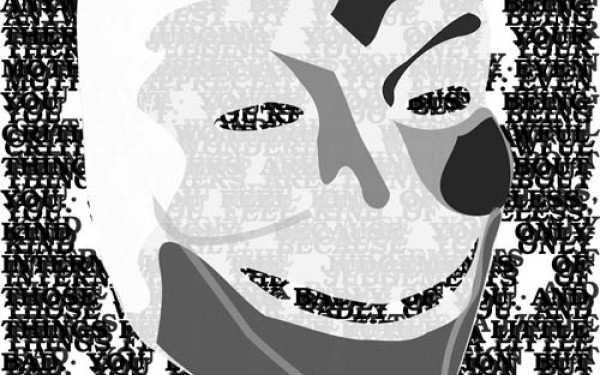Stories from Death Row
The Exonerated Shows Realities of the Wrongfully Convicted
The last criminal execution in Canada was in 1956. Before that, 438 people were exonerated—in other words, proven not guilty and freed before the noose could be tied.
Six people who were falsely convicted of murder will have their stories from death row told in The Exonerated, which runs until Dec. 2 at the 4001 Space.
The play offers up the accounts of five men and one woman who languished on death row—one for 22 years—before being found innocent of the crime they were convicted of committing.
Although the play is based on tragedies brought on by the United States’ judicial system, there is a sense that Canada is not immune to making the same mistakes.
“If it’s first brought to light in the American context, the instinct is to think, ‘Well, it’s not that bad here,’” said Concordia grad Chris Hicks, who plays Delbert Tibbs in The Exonerated,.
He added that in the context of the U.S., the jail system has been called a kind of “21st-century slavery.”
“I really do think you have a lot of laws that favour jailing people who are maybe of a lesser financial background, or who are aligned with a certain visible minority—and you do see that here in Canada,” Hicks said.
“I think if you compare it to the States, the incarceration there is much larger, but I think the core mechanisms that cause them to operate are similar,” he continued.
The theatre company producing the docudrama is Third Eye Ensemble, a company that aims to give a voice to subjects, topics and people suffering from injustice, and the majority of the ensemble are graduates of Dawson College’s Dome Theatre.
The Exonerated, had a run last year, and a core group has been working on it steadily ever since. Rehearsals for this run began nearly three months ago. Hicks said that, mostly due to the unorthodox subject matter, the staging uses a “less-is-more approach.”
The play, which was written by Jessica Blank and Erik Jensen, is based on a series of interviews they had with the individuals who were falsely imprisoned.
“The words that were captured in the interviews were compelling enough and important enough to not be distracted from,” Hicks said.
Documentary theatre takes special considerations to produce, considering the material is drawn from living people.
“It’s a tough thing to do,” said Raphael Grosz-Harvey, who plays Kerry Max Cook. “As actors, we jump in and out, but this is very different. It’s documentary theatre. It’s all taken from transcripts and recordings from interviews with the writers of the play. You have to be delicate. It’s a real person’s life—it’s not a character.”
Kerry Max Cook is one subject who ended up on death row at 19 years old and spent 22 years incarcerated, accused of rape and murder. He was finally released following the collection of DNA evidence that linked a former lover as the killer of the murdered woman.
His story becomes even more tragic; while Cook was on death row, his brother fell into a depression that led him to a life of heavy drinking and falling in with a dangerous group of people.
Cook’s brother was shot because of his involvement with that new crowd, and the murderer spent only three years in jail for it. It adds to the tragedy and frustration Cook felt over his 22-year wrongful imprisonment.
The stories of each of these people are told with a very stripped-down set, so nothing distracts the audience from the narrative.
“It needs actors who can tell this story, chairs would be nice, and that’s about it,” Hicks said of the staging.
Hicks’ character, Delbert Tibbs, is a man who was convicted of murder in 1974 but was later exonerated. In the play his story is told, but he is also written in as a kind of narrator. He links the stories together, but also offers perspective on the issues while discussing his own.
Grosz-Harvey admitted that the heavy subject matter can make it difficult for an audience to watch. It is so powerful, though, that when the play was shown to a U.S. governor in 2002, it is said to have influenced his decision to commute the sentence of everyone on death row in his home state of Illinois the following month.
“It’s a very profound play,” Grosz-Harvey said. “It hits you over the head a bit sometimes. And it’s so real. It’s hard to watch in certain moments because of how unfair what some of these people have gone through is.”
The Exonerated by Third Eye Ensemble / Nov. 28 to Dec. 2 / 4001 Space (4001 Berri St., Suite 103) / 8:00 p.m. / $15.00

WEB_742_536_90.jpg)
_600_832_s.png)

_600_375_90_s_c1.jpg)
__thumb_600_375_90_s_c1.JPG)

